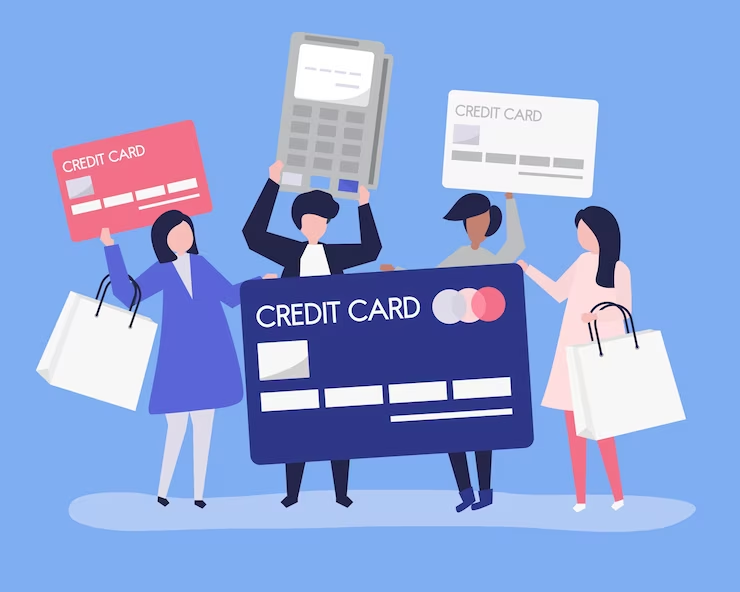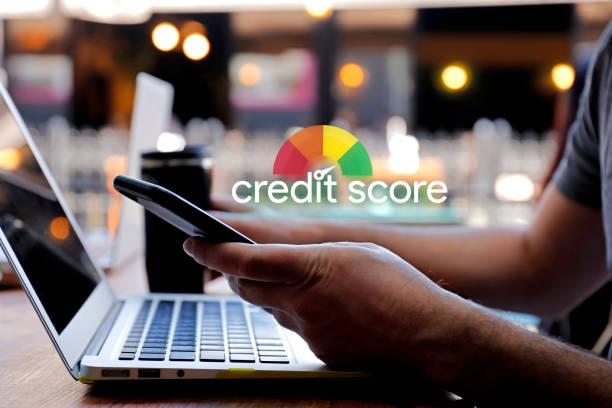Credit Tip Tuesday #126-Unsecured Vs. Secured Credit Cards: Making The Best Choice For You

Image Credits: Freepik
If you are looking to dive into the world of credit cards, you have come to the right place. Keep reading!
Today, we are going to tackle an important decision: choosing between unsecured and secured credit cards. Now, you might be wondering, what is the deal with these two types of credit cards? Well, we have got you covered.
By the end of this read, you will have a clear understanding of both options and be ready to make the best choice for your financial journey.
Let's get started!
Unsecured Credit Cards
Unsecured credit cards are the most common type of credit card that people are familiar with. These cards do not require any collateral or deposit, making them more accessible to a wider range of individuals.
When you apply for an unsecured credit card, the credit card issuer evaluates your creditworthiness based on your credit history, income, and other factors. If you meet their criteria, you will be granted a credit limit, which represents the maximum amount you can charge on your card.
The Upsides Of Unsecured Credit Cards
Unsecured credit cards offer a range of benefits that make them an attractive choice for many individuals. Here are some advantages you can enjoy with an unsecured credit card.

Image Credits: iStock
- Flexibility — Unsecured credit cards offer flexibility as they do not require a deposit. You can use your credit limit to make purchases, pay bills, or cover unexpected expenses.
- Convenience — With an unsecured credit card, you have the convenience of a revolving credit line. You can carry a balance from month to month and pay it off over time, subject to the card's minimum payment requirements.
- Building Credit History — Using an unsecured credit card responsibly and making timely payments can help you establish and improve your credit history. This is crucial if you plan to apply for loans or mortgages in the future.
- Perks And Rewards — Many unsecured credit cards include cashback rewards, travel rewards, or exclusive offers. These rewards can add value to your purchases and enhance your overall credit card experience.
The Downsides Of Unsecured Credit Cards
While unsecured credit cards offer flexibility and convenience, there are some significant downsides to keep in mind. Some of the potential drawbacks and factors you should consider before applying for an unsecured credit card are:
- Credit Requirements — Unsecured credit cards often require a good credit score or a fair credit history. If your credit score is low or you have a limited credit history, getting approved for an unsecured credit card might be challenging.
- Interest Rates and Fees — Unsecured credit cards typically have higher interest rates than secured credit cards. Additionally, some cards may have annual fees, balance transfer fees, or foreign transaction fees. It is essential to compare and understand these fees before applying for a card.
Secured Credit Cards

Image Credits: iStock
Secured credit cards, on the other hand, are backed by a security deposit. When you apply for a secured credit card, you will need to provide a deposit that acts as collateral for your credit limit.
The deposit typically equals your desired credit limit or a percentage of it. This deposit reduces the risk for the credit card issuer since they can use it to cover your outstanding balance if you fail to make payments.
Benefits Of Secured Credit Cards
Secured credit cards come with their own set of advantages, especially for those who are looking to build or rebuild their credit. The benefits that make secured credit cards a valuable tool for credit improvement are:
- Credit Building Opportunity — Secured credit cards are an excellent tool for building or rebuilding credit. Even if you have a poor credit score or no credit history, you can still get approved for a secured credit card by providing a deposit.
- Lower Risk for Credit Card Issuers — Since a deposit backs secured credit cards, the risk for credit card issuers is lower. This allows them to offer these cards to individuals who may not qualify for unsecured credit cards due to their credit history.
- Gradual Credit Limit Increase — With responsible use of a secured credit card, some issuers may offer a gradual increase in your credit limit over time. This demonstrates to potential lenders that you are a responsible borrower and can handle more credit.
Considerations For Secured Credit Cards
Now that we have covered the benefits of secured credit cards, the following are the essential considerations before opting for a secured credit card.
- Security Deposit — The primary consideration for secured credit cards is the requirement of a security deposit. You will need to have the funds available to provide as collateral, which can be a barrier for some individuals who may not have a lump sum of money to deposit upfront.
- Limited Credit Limit — Secured credit cards typically have lower credit limits compared to unsecured cards. The amount of your security deposit usually determines the credit limit. While this can be seen as a disadvantage, it also helps you maintain better control over your spending and avoid getting into excessive debt.
- Fees And Interest Rates — Similar to unsecured credit cards, secured cards may come with fees and interest rates. It is essential to review the terms and conditions of different cards and compare the associated costs before making a decision. Look for secured credit cards with low fees and competitive interest rates to ensure you are getting the best deal.
Unsecured Vs. Secured Credit Card: Comparison table

Image Credits: iStock
Here is a comparison table highlighting the key differences between unsecured and secured credit cards:
|
Aspect |
Unsecured Credit Cards |
Secured Credit Cards |
|
Collateral/ Deposit |
No collateral or deposit required |
Requires a security deposit as collateral |
|
Credit Limit |
Determined by creditworthiness and income |
Typically equal to or a percentage of the security deposit |
|
Accessibility |
Require a good credit score or fair credit history |
Accessible to individuals with poor or no credit history |
|
Interest Rates |
Typically higher interest rates |
Interest rates can vary but often lower than unsecured |
|
Fees |
Annual fees, balance transfer fees, etc. |
Annual fees may apply, but generally, fewer additional fees |
|
Credit Building |
Helps establish and improve credit history |
Excellent tool for building or rebuilding credit |
|
Perks and Rewards |
Often come with cashback, travel rewards, etc. |
Limited perks and rewards options |
|
Financial Requirements |
Requires a stable income |
Requires funds for the security deposit |
|
Credit Limit Increases |
May increase with responsible card usage |
Potential for gradual credit limit increase |
|
Risk for Card Issuers |
Higher risk for card issuers |
Lower risk for card issuers due to the collateral |
Remember, this table provides an overview of the main differences between unsecured and secured credit cards. It is important to research specific credit cards and their terms and conditions before making a decision.
Choosing The Best Option For You
Now that we have explored the features and benefits of both unsecured and secured credit cards, how do you decide which is best for you?
Here are a few factors to consider:
● Your Credit History
If you have a strong credit history and a good credit score, you may have a better chance of getting approved for an unsecured credit card. On the other hand, if you have a limited credit history or a low credit score, a secured credit card can help you start building or rebuilding your credit.
● Financial Situation
Consider your current financial situation. Can you comfortably provide a security deposit for a secured credit card without causing any financial strain? If not, an unsecured credit card may be a more suitable option. Remember, you should never put yourself in a precarious financial position just to obtain a credit card.

Image Credits: iStock
● Credit Goals
What are your credit goals? If you are looking to establish or improve your credit, both unsecured and secured credit cards can be valuable tools. However, secured credit cards may offer more accessible options if your credit is less than perfect.
● Interest Rates
If you anticipate carrying a balance on your credit card, pay close attention to the interest rates. Secured credit cards often have lower interest rates, saving you money over time. However, if you plan to pay off your balance in full each month, the interest rate may be less of a concern.
● Rewards And Perks
Consider the rewards and perks offered by different credit cards. Unsecured credit cards tend to have more extensive rewards programs, including:
- Cashback
- Travel Points
- Exclusive Discounts
If rewards are essential to you and you have a strong credit profile, an unsecured credit card may be more appealing.
● Future Plans
Think about your long-term financial goals. Building a solid credit history with an unsecured credit card might be beneficial if you are working towards a major purchase, like a home or a car. Lenders often look for a solid credit history when evaluating loan applications.
Conclusion
We have explored the world of unsecured and secured credit cards, delving into their benefits and considerations. Now it is time for you to make the best choice for your financial journey.
Remember to consider your credit history, financial situation, and goals when deciding between the two. Whether you opt for the flexibility of an unsecured card or the credit-building power of a secured card, responsible credit management is vital.
Choose wisely, my friends! Apply for the credit card that suits you best and start building a brighter future today.


